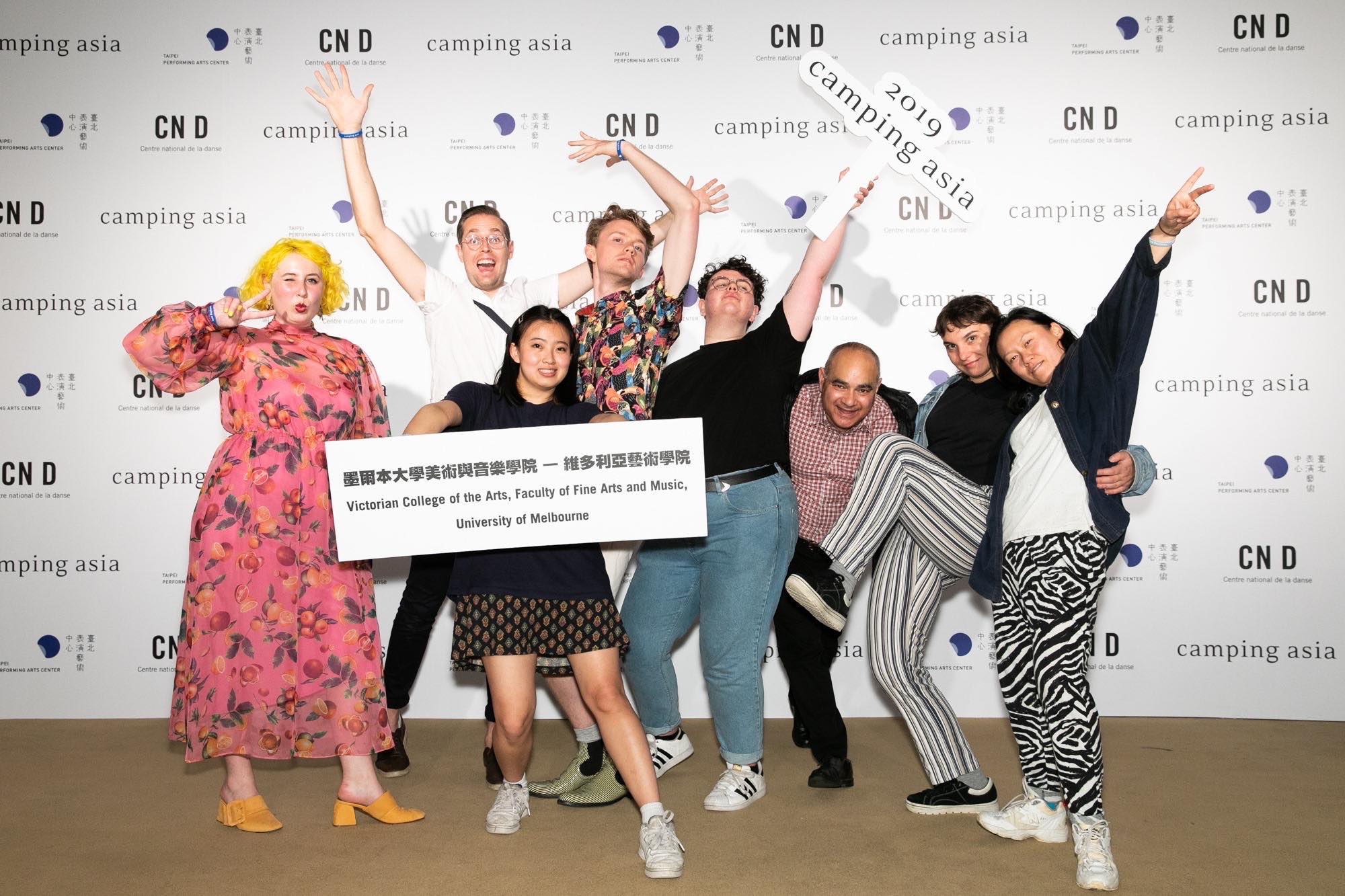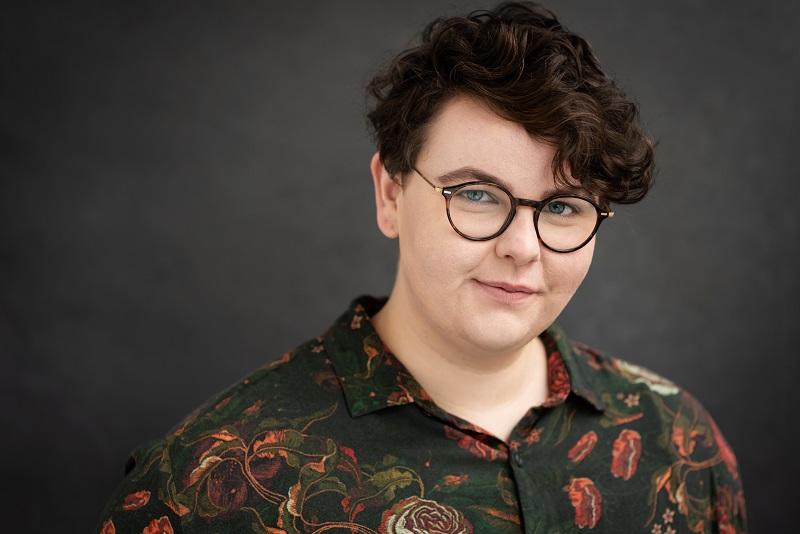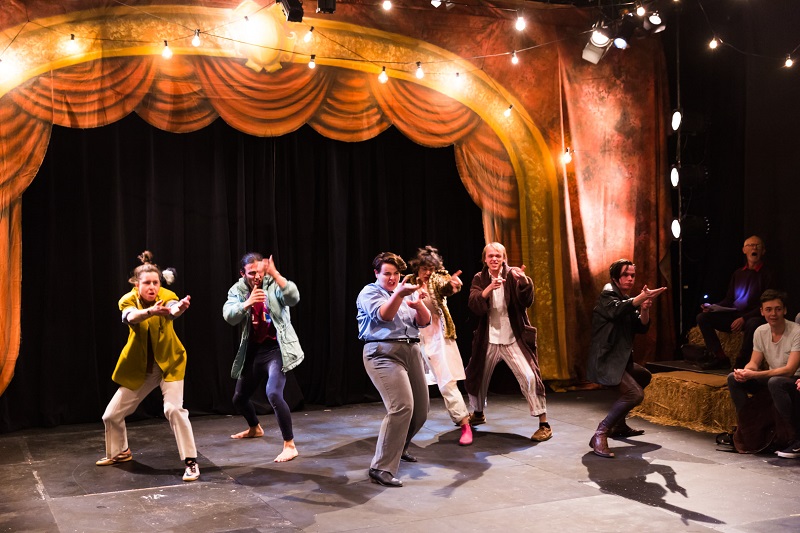Meet Henry Kelly, Bachelor of Fine Arts (Theatre) graduate at the University of Melbourne

Henry Kelly graduated from the first cohort of the re-imagined Bachelor of Fine Art (Theatre) course at the Victorian College of the Arts. Life has presented many highs and lows since graduating, including a trip to Taipei and a broken wrist – but that hasn't stopped him creating. He tells Mireille Stahle about his most recent projects during COVID-19.
Hi Henry, can you tell us a bit about what you’ve been doing since finishing your course?
It’s been a whirlwind! Directly after finishing my course, I was lucky enough to travel to Taipei with the University of Melbourne to participate in Camping Asia – an international workshop series. Here we collaborated with fine arts students from around the globe, as well as taking classes with professional artists. I came home only to break my wrist at a Carly Rae Jepsen concert the very next day, which I think was a way of the universe telling me to stop, and take some time to rest and reflect on the huge three years I’d just had. I’m definitely guilty of tying my worth as an artist to how many projects I’ve got going on at one time, so a big part of this year was learning how to slow down and be present with what I’m working on.

Like many artists, COVID-19 has affected many of the projects I had planned for 2020, which has been scary, especially as a new graduate trying to find my place in the industry. A lot of my time has been dedicated to working through this anxiety of the future of our industry in Australia, and allowing myself permission to not have answers.
I’ve also recently finished a 10-week creative development process, for a new work called We’re Probably Really, Really Happy Right Now by Ellen Grimshaw. The development was conducted online after our season at Theatre Works was postponed until 2021. This has been wonderful, to have something to work on during isolation, and has pushed my creativity in new directions.
I’m now working on an interactive radio play, at least that’s what I’m calling it, to be presented in the "Pants Off" category of Melbourne Fringe 2020.
Can you tell us a bit about the pathway you took to study at the Faculty of Fine Arts and Music?
I auditioned for the VCA three times before getting accepted. Previously, I attended Showfit, which is a full-time music theatre course in East Brunswick. I learned so much about myself and my arts practice while there, and it was a great opportunity to add to my skillset as a performer.
In retrospect, I’m glad that I didn’t get in to VCA straight out of high school, even though at the time it felt like getting into drama school was the be all or end all. I needed the time to go be a human. I had a chance to travel and work full-time, which taught me things about myself and the world that I wouldn’t be able to find in an institution. I felt by the time I was accepted into my course, I really had something to offer.

Was there a lecturer or peer who had particularly positive influence on your study at the Faculty?
There were so many people at the VCA who really nurtured my growth as an artist while I was studying. One of note is Steph Kehoe, tutor in theatre. She is the perfect mix of practical and caring. I always felt I could come to her with issues, and she would help me find solutions in a way that were attuned to what I needed.
Her classes were detailed, and she wasn’t afraid to be transparent with her students in feedback, as well as being honest about moments when she didn’t know the answers. The work she was putting in behind the scenes was astonishing, and it felt like you were the only person who had her attention, when in reality, she was juggling so many responsibilities.
Was your experience at the Faculty as you expected it to be? What was it like being on campus?
I loved my time at the VCA. I loved the size of the Southbank campus, as it really felt like a community. I could go anywhere and run into a friend. In the odd event I would have to go to Parkville, I got intimidated by its size, and the amount of people.
A typical day involved working on skills in the morning, and project work in the afternoon. They're long days, going from 9am-6pm four days a week, and usually hanging back in the evening or coming in on our days off to continue working. It’s hard work, but it was worth it.
In third year, the BFA Theatre students go on a trip, and for our year we went to Berlin, Germany. We visited historic sites, immersed ourselves in the art, and took workshops. We had the opportunity to take a workshop with Gob Squad, a theatre ensemble known for their improvised work.
One of the biggest highlights for me was at KW Contemporary, an art museum which was featuring an exhibition on David Wojnarowicz, one of my favourite artists. Experiencing someone’s work live, especially an artist who has influenced your practice, can be a life-changing experience.
Can you tell us about any other highlights or achievements?
I am proud of many things I achieved at the VCA. There are moments in scene study class from my first year that I look back on with pride. There are complete shows I’ve been part of. I think one of the most intense experiences I’ve had was in third year when we were to make a work in response to our trip to Berlin.
The task given to us was a simple one, but we decided as a group to make a full scale work in 40 hours of class time. We almost killed each other, and I don’t think I’ve had a more stressful time making, but what we produced together when the pressure was on really made me proud of my company.
Did you have any opportunities to collaborate? Can you tell us about those?
My course was all about collaboration. We had a whole class called Collaborative Practice. Over the three years, we really became attuned to each other, and how we all work, and created a shorthand when we made. We had opportunities to collaborate with different departments when it came to bigger productions, as well as external directors.

What kind of opportunities were there to learn about the theatre industry?
We constantly had the opportunity to meet people in the industry. The majority of our teachers were people currently working, as well as having a class dedicated to industry professionals coming to talk to us about the ins and outs of life as a working artist. I really felt I had a solid foundation to stand on when I left.
We also had an opportunity to do a residency with Arena Theatre Company in Bendigo, where we met many artists around Australia. This was particularly important as we were out of the university environment, and felt like we were treated as peers, rather than students.
What are your goals for the next few years?
I’m very interested in gender, particularly masculinity, and how it’s navigated in our society. I’m finding myself being drawn to religious ideation of late, having grown up Catholic, and what lasting affects this has on a person, and on our society. I have a very strong visual aesthetic I want to hit within my work, something darker, but most importantly, queer.
I would love to say that my five-year plan involves me headlining at Dark Mofo, or touring Europe with my work, but at my core, I’m a realist. The current climate of the arts in Australia is tragic. The government is trying its best to silence us. The most I can hope for is that I break even in the work I make, that I continue to have opportunities to make, and that I use my voice the best I can.
If I have the opportunity to be paid to act or make work for a few months of the year, I’ll be grateful. The goal is to have periods where I can step away from a job in hospitality and make art, and not stress about the financial repercussions.
What do you think a “career” for someone with your skills looks like? What advice would you give to prospective students who want to pursue a career in your field?
I would say that I’m a pretty well-rounded artist. Though my passion is acting and theatre-making, I write, I make digital art, and I have dabbled in editing, both audio and video. Sometimes I think I’d love to be an animator, or make documentaries, but I soon realise I don’t have the same love or dedication for it right now as I do other things. People change, our interests change, and maybe one artistic medium isn’t going to serve what you want to say at a particular moment in time. I think artists should always be adapting, and shouldn’t limit themselves to what interested them yesterday if it doesn’t interest them today.
A career in the arts is hard, it's uncertain. But we are doing it because it’s what we have to do. I would also say that you are no less an artist because you need to support yourself, so don't feel like you can’t call yourself an artist because you need to work another job to make ends meet. We live in a society that neglects the power and importance of the arts. Know that the system in broken, and while we must exist in the system to survive, use your tools, your artistry, as weapons of rebellion, however small.